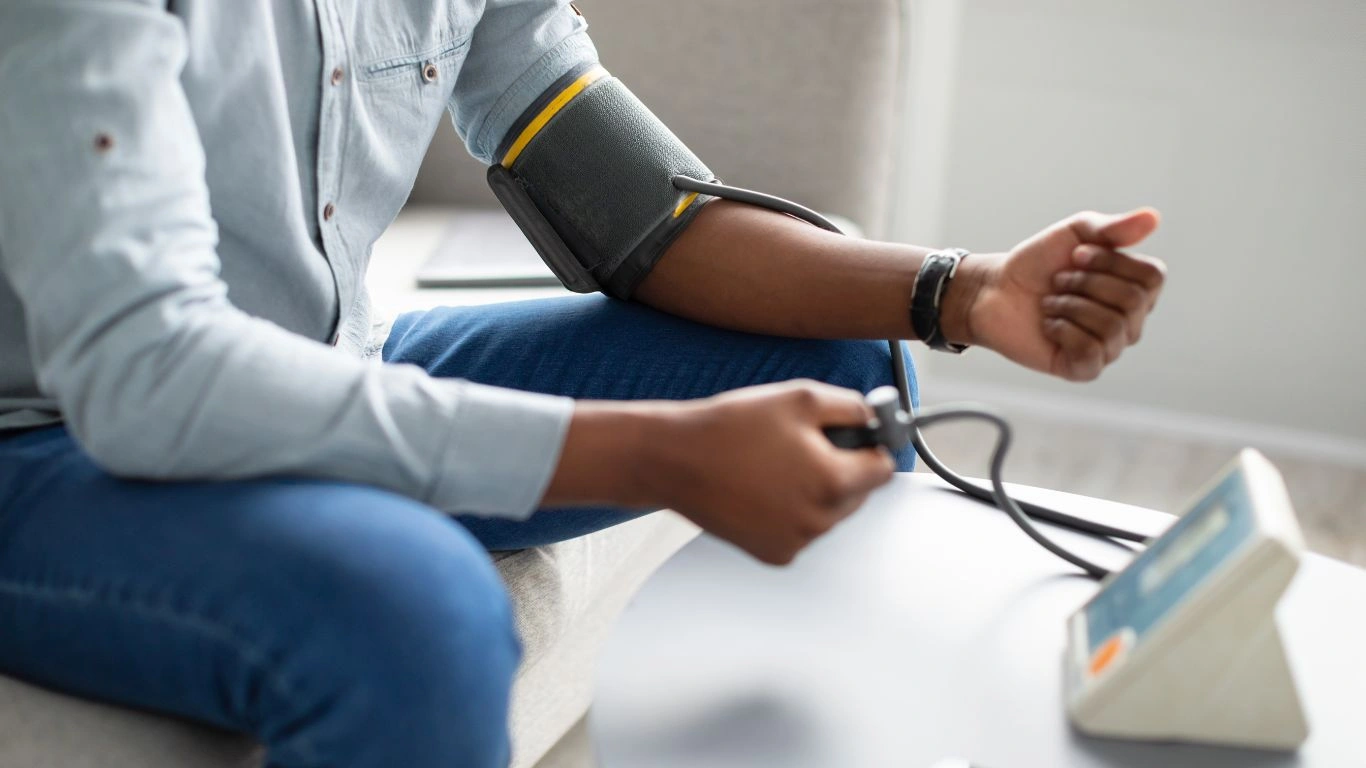Ginger for Blood Pressure: A Natural Remedy That Works Wonders
Ginger – that knobby little root sitting quietly in your kitchen – might just be the natural blood pressure hero you didn’t know you needed. As someone who has spent years helping people manage hypertension, I’ve seen firsthand how small dietary changes can make a big impact. And ginger? It’s a powerhouse. The blood pressure-lowering benefits of ginger have been gaining attention, not just in traditional medicine but also in scientific research. But how exactly does it work? And more importantly, how can you easily incorporate it into your daily routine? Let’s dive in.
How Ginger Can Naturally Help Lower Blood Pressure

If you’ve ever enjoyed a cup of ginger tea or added fresh ginger to a meal, you already know how this root packs a punch – not just in flavor but in health benefits too. When it comes to high blood pressure, ginger works in several key ways:
- Natural Vasodilator: Ginger helps widen blood vessels, improving circulation and reducing the strain on your heart.
- Anti-Inflammatory Effects: Chronic inflammation is a hidden culprit behind hypertension, and ginger’s natural compounds help combat it.
- Supports Better Blood Flow: Ginger contains salicylates, which act as natural blood thinners, helping reduce clot formation and improving circulation.
I’ve had many patients ask me if ginger is just another health fad. My answer? Not at all. I’ve personally seen people experience noticeable improvements in their blood pressure readings just by making ginger a daily habit. And the best part? It’s delicious and easy to incorporate.
The Science Behind Ginger and Blood Pressure Reduction

It’s not just folk medicine that praises ginger – science backs it up too. Studies suggest that ginger has multiple compounds that contribute to its blood pressure-lowering effects. Some key research findings include:
- Ginger’s Impact on the Renin-Angiotensin System (RAS): This system plays a huge role in blood pressure regulation. Some studies indicate that ginger can help regulate RAS activity, preventing excessive blood pressure spikes.
- Antioxidant Properties: Oxidative stress damages blood vessels, leading to higher blood pressure. Ginger’s antioxidants help protect against this damage.
- Potential ACE Inhibition: Some compounds in ginger may work similarly to ACE inhibitors (a common type of blood pressure medication), helping to keep blood pressure in check.
Now, I’m not saying ginger will replace medication for everyone. But for those looking for natural ways to support their heart health, it’s a fantastic addition to a well-rounded approach.
How to Add Ginger to Your Diet for Maximum Benefits

Alright, now that we know why ginger is amazing, let’s talk about how to actually use it. Because let’s be real – if it’s not easy, it’s not happening. Here are some of my favorite ways to add ginger to your daily routine:
- Ginger Tea: A warm cup of ginger tea is a soothing way to start or end the day. Just slice up fresh ginger, steep it in hot water, and enjoy.
- Ginger Smoothies: Add a small piece of fresh ginger to your morning smoothie for an extra health boost.
- Cooking with Ginger: Whether it’s stir-fries, soups, or even homemade salad dressings, ginger adds a flavorful and healthy touch.
- Ginger Supplements: If fresh ginger isn’t your thing, supplements can be a convenient alternative. Just be sure to check with your doctor before adding them to your routine.
Over the years, I’ve encouraged many patients to experiment with ginger in their diets. Some start small with tea, while others go all in with daily ginger shots. Either way, the key is consistency.
How Much Ginger Should You Consume for Blood Pressure Benefits?

Now that we know ginger has some pretty amazing blood pressure-lowering benefits, the next logical question is: how much should you actually consume? More isn’t always better—trust me, I’ve had patients go overboard with certain natural remedies, only to end up with unwanted side effects.
For ginger, a safe and effective daily amount is typically:
- Fresh Ginger: About 1-2 grams per day (that’s roughly a small thumb-sized piece).
- Ginger Powder: Around ½ teaspoon daily.
- Ginger Tea: 1-2 cups per day, using fresh ginger slices.
- Ginger Supplements: If opting for capsules, aim for around 1000 mg per day (but always consult a doctor first).
I often tell my patients to start small and observe how their body responds. Ginger is powerful, and for some people, especially those on blood-thinning medications, excessive amounts could lead to side effects like dizziness or stomach discomfort.
Who Should Be Cautious When Using Ginger?

While ginger is generally safe for most people, there are a few cases where caution is needed. I always remind my patients that even natural remedies can have interactions and side effects. Here are some groups who should be mindful:
- People on Blood Pressure Medications: Ginger can enhance the effects of some medications, which might lower blood pressure too much. If you’re on meds like beta-blockers or calcium channel blockers, check with your doctor.
- Those on Blood Thinners: Since ginger has mild blood-thinning properties, it can interact with medications like warfarin or aspirin.
- Individuals with Low Blood Pressure: If your BP is already on the lower side, consuming too much ginger might make you feel lightheaded.
- Pregnant Women: Ginger is generally safe in moderation, but large amounts might not be ideal during pregnancy, so it’s best to consult a healthcare provider.
I’ve had patients ask me, “Isn’t ginger natural? Why would it cause issues?” The truth is, natural doesn’t always mean risk-free. That’s why balance is key.
Best Time to Take Ginger for Maximum Benefits

Timing can play a role in how effective ginger is for blood pressure management. While there’s no strict rule, I’ve found through personal experience (and patient feedback) that certain times work better than others:
- Morning: Drinking ginger tea first thing in the morning can help kickstart circulation and digestion.
- Before Meals: Ginger can improve digestion and nutrient absorption, so taking it 20-30 minutes before eating may enhance its benefits.
- Before Bed: A warm cup of ginger tea at night can help relax blood vessels and promote restful sleep.
Personally, I love having a small cup of ginger tea in the evening. It’s calming, and I’ve noticed it helps me feel more relaxed—something that’s crucial for blood pressure control.
Combining Ginger with Other Natural Remedies for Blood Pressure
Ginger is fantastic on its own, but when paired with other heart-friendly foods and lifestyle habits, the effects can be even more powerful. Here are some natural combinations that work well:
- Ginger + Garlic: Both have blood pressure-lowering properties and work even better together.
- Ginger + Lemon: A refreshing combo that supports circulation and hydration.
- Ginger + Turmeric: These two anti-inflammatory powerhouses can help with overall heart health.
- Ginger + Exercise: Regular physical activity combined with ginger consumption may enhance its benefits.
Many of my patients have experimented with these combinations and reported feeling more energized and seeing steady improvements in their blood pressure readings. It’s all about making small, sustainable changes.
Case Studies & Real-Life Examples

One of the most rewarding aspects of my work is hearing real-life success stories from people who have taken charge of their health. While research and science are important, nothing beats firsthand experiences. Here are a couple of cases that really stuck with me:
Case 1: Mark’s Journey to Lower Blood Pressure Naturally
Mark, a 52-year-old teacher, came to me with a blood pressure reading of 145/90 mmHg. He was hesitant to start medication and wanted to try a natural approach first. I suggested incorporating ginger into his daily routine along with a heart-healthy diet and moderate exercise.
- He started drinking ginger tea every morning.
- He added fresh ginger to his meals at least four times a week.
- He combined ginger with garlic and turmeric for an extra heart boost.
After three months, his blood pressure dropped to 125/82 mmHg. His doctor was impressed, and Mark felt more energized than ever.
Case 2: Sarah’s Battle with Stress-Induced Hypertension
Sarah, a 38-year-old business owner, struggled with high blood pressure due to chronic stress. Medications helped, but she wanted additional support. She started incorporating ginger tea before bed to help with relaxation.
- Within a few weeks, she noticed improved sleep quality.
- Her systolic blood pressure dropped by 8-10 points.
- She felt calmer and more in control of her stress levels.
Ginger wasn’t the only factor in her improvement, but it played a key role in her overall wellness strategy.
Key Takeaways: What You Need to Remember

Let’s sum up the most important points from everything we’ve covered about the blood pressure-lowering benefits of ginger:
- Ginger helps relax blood vessels, improves circulation, and reduces inflammation.
- Scientific studies support its role in lowering blood pressure.
- Start with 1-2 grams of fresh ginger daily, or around ½ teaspoon of ginger powder.
- Consistency is key: Incorporate ginger into your routine for best results.
- Be cautious: If you’re on medication, consult your doctor before making major dietary changes.
FAQs
Here are some of the most common questions I get from patients about using ginger for blood pressure.
1. How long does it take for ginger to lower blood pressure?
It varies. Some people notice small changes within a few weeks, while others see results after a few months. The key is consistency.
2. Can I take ginger supplements instead of fresh ginger?
Yes! Supplements can be a great option, but check the dosage and consult your healthcare provider.
3. Can I consume ginger if I’m on blood pressure medication?
Ginger can enhance the effects of some medications, so it’s best to talk to your doctor before adding large amounts to your diet.
4. What’s the best way to take ginger for blood pressure?
Ginger tea, fresh ginger in meals, or even ginger shots can be effective. Find a method that works for you!
Bonus: Additional Resources & DIY Tips
Want to make ginger a regular part of your diet? Here are some easy DIY recipes to get started:
- Easy Ginger Tea: Slice fresh ginger, steep in hot water, and add a squeeze of lemon.
- Ginger & Honey Shot: Blend fresh ginger with honey and take a small spoonful each morning.
- Ginger Smoothie: Blend banana, spinach, fresh ginger, and almond milk for a heart-healthy drink.
Appendix: References, Disclaimer & Call to Action
For further reading, check out these resources:
Disclaimer: This article is for informational purposes only and does not replace medical advice. Always consult with a healthcare professional before making any changes to your diet or medication.
Have you tried using ginger for blood pressure? Let me know your experience in the comments!

Dr. Gwenna Aazee is a board-certified Internal Medicine Physician with a special focus on hypertension management, chronic disease prevention, and patient education. With years of experience in both clinical practice and medical writing, she’s passionate about turning evidence-based medicine into accessible, actionable advice. Through her work at Healthusias.com, Dr. Aazee empowers readers to take charge of their health with confidence and clarity. Off the clock, she enjoys deep dives into nutrition research, long walks with her rescue pup, and simplifying medical jargon one article at a time.







